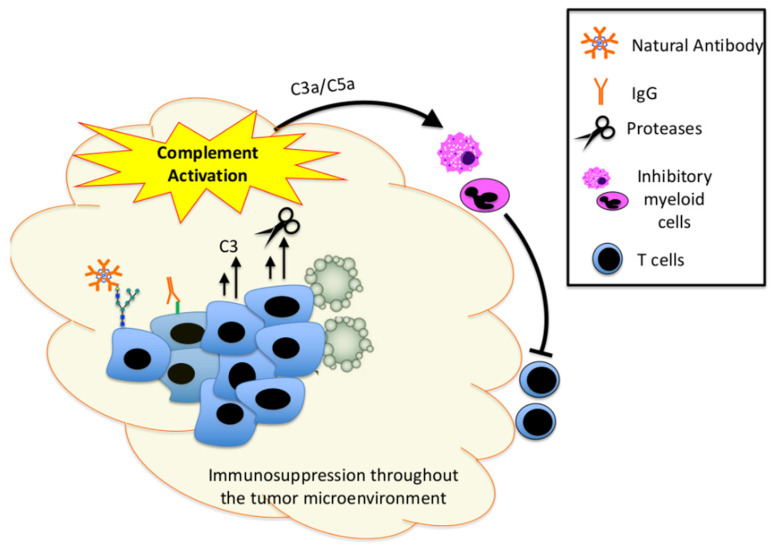Figure 2.
Mechanisms by which cancer cells activate complement to control the tumor microenvironment. Tumor cells actively promote complement activation by several mechanisms. The natural antibody binds to glycans on the cell surface, and IgG binds to tumor neoepitopes. Cancer cells also produced complement proteins, such as C3, which fuels local activation. Cancer cells can also release proteases, such as cathepsin L, which directly activate complement proteins. Complement activation within tumors likely causes apoptosis and necrosis of some target cells, but it also produces C3a and C5a which recruit inhibitory myeloid cells into the tumor microenvironment. These myeloid cells suppress the anti-tumor function of CD4 and CD8 T cells.

